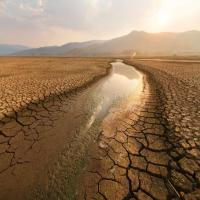
By Reuters
October 15, 20247:19 PM GMT+2; original paper: Millions in southern Africa facing worst food crisis in decades, warns WFP | Reuters
The severe food crisis in southern Africa, affecting millions of people, is a pressing humanitarian issue. The World Food Programme (WFP) has sounded the alarm, warning that the situation could escalate into a "full-scale human catastrophe" if adequate resources are not forthcoming.
The crisis is widespread, with a record five countries - Lesotho, Malawi, Namibia, Zambia, and Zimbabwe - declaring national disasters and appealing for international aid. Angola and Mozambique are also severely affected, with approximately 21 million children suffering from malnutrition.
The WFP has initiated a relief effort, aiming to provide food and cash assistance to over 6.5 million people in the hardest-hit countries. However, the agency faces significant funding challenges, having received only a fifth of the £270 million required to provide immediate assistance.
The drought, triggered by the El Niño weather phenomenon, has had a devastating impact on the region. Crops have failed, and livestock has perished, exacerbating the food insecurity. Climate change is also a contributing factor, with scientists warning that sub-Saharan Africa is one of the most vulnerable regions to its effects.
The drought has far-reaching consequences, including power outages in Zambia and Zimbabwe. The water level of the Kariba Dam, which supplies hydroelectric power to both countries, has dropped to a critically low level, resulting in frequent blackouts. In a desperate bid to provide sustenance for the hungry, authorities in Namibia and Zimbabwe have resorted to culling wildlife, including elephants.
The WFP has emphasized the urgent need for action, warning that the situation will only worsen unless additional resources are received. With the lean season approaching, the agency is racing against time to provide assistance to those in need. The international community must respond swiftly and generously to alleviate the suffering of the millions affected by this devastating crisis.
Key statistics:
* 21 million children suffering from malnutrition
* 6.5 million people in need of food and cash assistance
* £270 million required to provide immediate assistance
* 5 countries (Lesotho, Malawi, Namibia, Zambia, and Zimbabwe) have declared national disasters
* Angola and Mozambique are also severely affected
* El Niño weather phenomenon is the primary cause of the drought
* Climate change is exacerbating the crisis
* Power outages in Zambia and Zimbabwe due to low water levels at the Kariba Dam
* Wildlife culling in Namibia and Zimbabwe to provide sustenance for the hungry
The situation in Southern Africa is critical, and immediate action is necessary to prevent a humanitarian catastrophe.